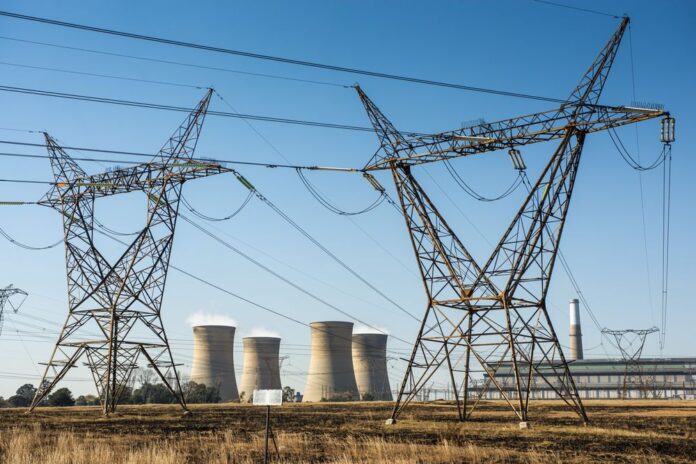Farai Mabeza
Zimbabwe has recorded an impressive performance in the latest Electricity Regulatory Index 2020 advancing from 21st position out of 34 participants in 2019 to sixth position in 2020 out of 36.
According to the 2020 results, some regulatory initiatives and actions have led to improvements in the Zimbabwe’s regulatory framework, especially in the areas of institutional capacity, framework for renewable energy and tariffs.
The ERI, a flagship report of the African Development Bank, is a composite index which measures the level of development of electricity sector regulatory frameworks in African countries against international standards and best practice.
“The African Development Bank has been at the forefront of efforts to mainstream electricity sector regulation issues in Africa within the broader sector discourse, recognizing the importance of establishing robust legal and regulatory frameworks to support the financial sustainability of the sector and attract private sector investment,” said Dr. Kevin Kariuki, Vice President, Power, Energy, Climate and Green Growth, at the African Development Bank.
The third edition of the ERI report was launched during the Digital Energy Festival of the Africa Energy Forum, on November 5 this year.
The ERI is composed of the following three pillars: Regulatory Governance Index, Regulatory Substance Index and Regulatory Outcome Index.
On Zimbabwe, the Index noted that: “Other than during the first half of 2020 when tariffs were not adjusted for large currency depreciation (under the automatic adjustment formula) and the impact on consumers, tariffs in Zimbabwe are cost reflective.”
The Zimbabwe Energy Regulatory Authority (ZERA) was temporarily unable to recover its cost of operation from the tariff during the early part of the year.
Nevertheless, the regulator is implementing a program of gradual migration back to cost reflective levels through tariff adjustments of 50 percent within three months (from September 2020 to December 2020).
ZERA has invested a lot of resources in training existing staff over the past year in key regulatory areas and recruited a few experts to join its team, thereby adequately strengthening staff capacity.
The report also indicated that renewable energy sources are “self-dispatching” in 2020, compared with the situation in 2019. اين ذهب كريستيانو رونالدو
“Most renewable energy projects are connected in the distribution network and automatically synchronise, if grid voltage is available. This guarantees unimpeded access to the grid and priority dispatch for renewable energy sources,” the index report explained.
The utility has developed a model power purchase agreement that is given to independent power producers and prospective developers.
ZERA approves all signed power purchase agreements and recognizes the price adjustment clauses in the tariff while new model power purchase agreements are being developed to incorporate the tendering process, which has now been adopted as a mechanism for procuring renewable energy generation.
Meanwhile, Uganda for the third time in a row emerged as the top performer in this year’s ERI published by the African Development Bank.
The East African country, along with Namibia, Tanzania, Zambia and Kenya, the other top performers, have regulators with the authority to exert the necessary oversight on the sector.
However, the overall electricity regulatory frameworks of African countries is poorly developed, and most countries experience major regulatory weaknesses.
Wale Shonibare, Director for Energy Financial Solutions, Policy and Regulations, at the African Development Bank, said COVID-19 related restrictions had increased residential electricity demand and decreased industrial/commercial demand. This had resulted in shortfalls in the projected revenues of utilities.
“To address these challenges, regulators will be required to play an even more critical and central role post-Covid, to ensure that the sector recovers with minimal and controlled impact on consumers and utilities,” Shonibare said.
Koffi Klousseh, Director of Project Development at Africa50, praised the ERI as a great tool for assessing the readiness of the electricity sector for private sector investments.
Main findings of the ERI 2020 report include that 69 percent of countries surveyed have regulatory mechanisms in place to facilitate electricity access.
In 21 of the 36 countries surveyed, the utility is not involved in funding rural electrification. The government, NGOs and consumers do this.
It further noted that in 90 percent of the countries surveyed, the executive holds the power to appoint board members and heads of regulatory institutions who report to them.
“This removes the core of decision-making independence from regulators, who are subjected to subtle and direct political pressure to skew key regulatory decisions towards the political inclination of the government in power,” the report says.
Most countries have legislation to deal with conflict of interest among commissioners and heads of regulatory institutions while in office but few have adequate mechanisms to regulate conflict of interest and other ethical issues, affecting the integrity of regulatory decisions.
“Political authorities have significant influence on the finances of regulatory authorities. In many instances, laws establishing regulatory institutions do not clearly indicate sources of funds for the institution,” the findings noted.
Among the countries that did not do well was Rwanda with the East African country declining from fifth position in ERI 2019 to 11th position in ERI 2020.
The weak performance was mainly the result of the weakness identified in the utility assessment (ROI), driven by low scores in financial performance and competitiveness and quality of service sub indicators.
Senegal declined from 8th position in ERI 2019 to 12th position in ERI 2020, mainly due to weak performance in ROI, specifically with regard to financial performance and competitiveness and quality of service sub indicators. تطبيقات لربح المال في مصر
The country’s regulator has not approved the cost of service study undertaken by the utility, and the recommendations are not being implemented.
The latest electricity regulatory index report presented the results of the third edition of the Electricity Regulatory Index (ERI) for Africa, covering thirty-six countries. The first edition was published in 2018 and covered fifteen countries. Thirty-four countries participated and were assessed in ERI 2019.
The regulatory governance index assesses the level of development of the legal and institutional set up of the regulatory framework of a country.
It is concerned with the existence and content of electricity sector regulations.
The regulatory substance index assesses how the regulator has operationalized the mandate bestowed on it by the RGI in developing and implementing key regulatory instruments and frameworks for the sector.
The regulatory outcome index assesses the outcomes of regulatory decisions, actions and processes on the sector from the perspective of regulated entities. kazino
It offers insights into how the actions of regulators have affected the performance of the sector.












